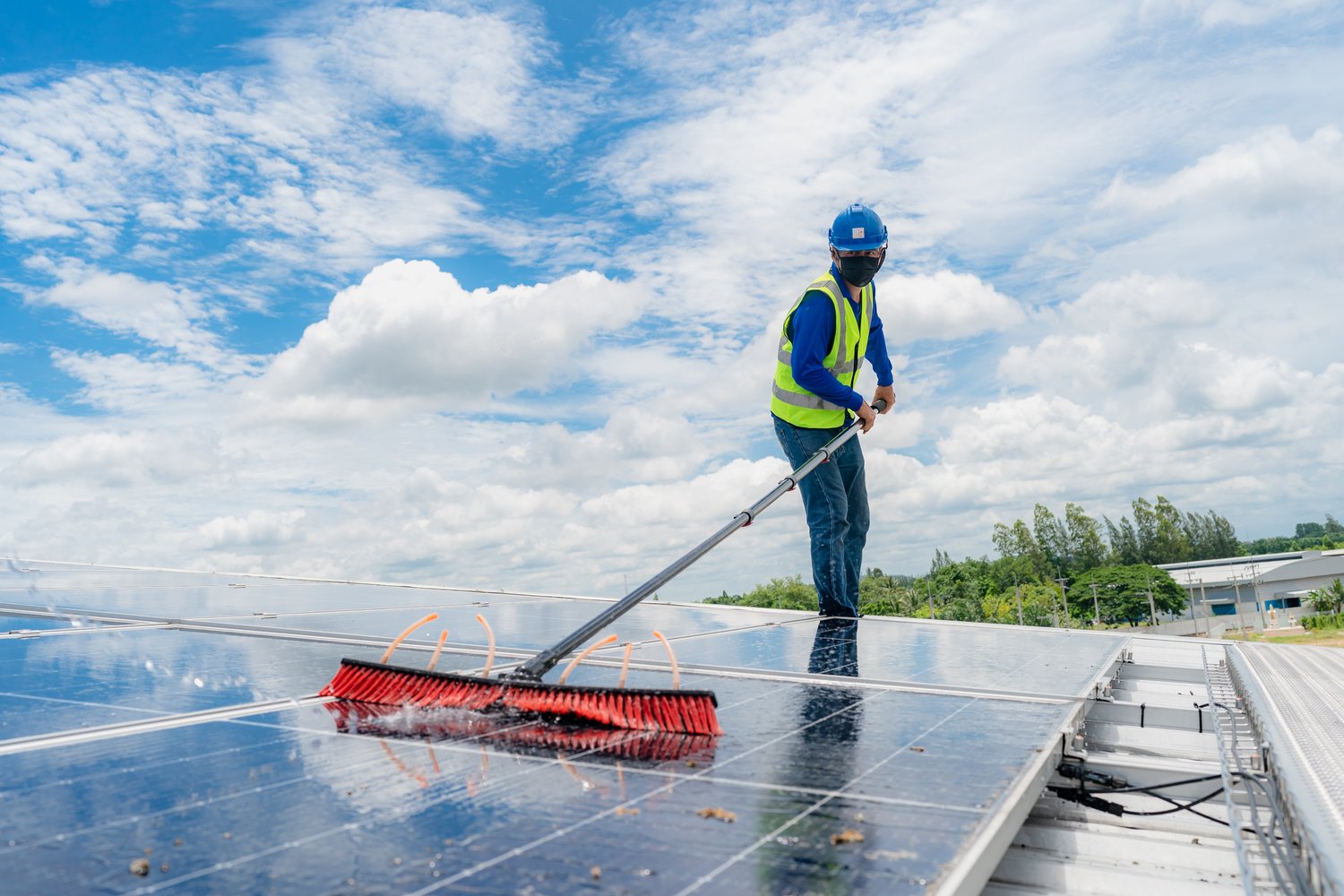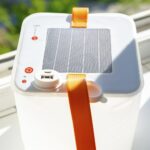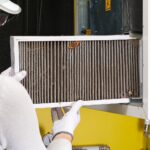Imagine harnessing the power of the sun to energize your home efficiently, only to find performance dwindling due to dirty solar panels. Maintaining cleanliness in solar panels is not just about aesthetics; it’s about maximizing the energy output and, ultimately, the return on your investment. Dive into the myriad ways you can keep these eco-friendly powerhouses gleaming and productive.
- Discover a range of cleaning methods that suit different needs, ensuring the best care for your solar panels.
- Get familiar with DIY techniques that are both cost-effective and simple, making solar maintenance accessible to all.
- Learn when it’s best to enlist professional services to ensure optimal panel performance and longevity.
- Equip yourself with knowledge about the essential tools and materials necessary for high-quality solar panel cleaning.
- Stay safe and efficient with crucial tips that prevent accidents during the cleaning process.
By the end of this article, you’ll be well-equipped with strategies to maintain your solar panels effectively, ensuring they continue to serve your energy needs efficiently. Engage with the content to gain practical insights and perhaps even share your own experiences in optimizing solar energy capture.
Exploring Various Solar Panel Cleaning Methods
Delving into diverse solar panel cleaning techniques is essential for ensuring optimal performance and longevity of your solar investment. Solar panels, when clean, operate at peak efficiency, harnessing the sun’s energy without impediment. From traditional to innovative solutions, understanding the pros and cons of each method will guide you in choosing the best fit for your specific situation.
One popular method is manual cleaning, which involves using non-abrasive materials like soft brushes or sponges to remove dirt and grime. This hands-on approach allows for close inspection of the panels for any physical damage. Another effective approach is using automated cleaning systems, which offer convenience through robotic technology but may be more costly.
In regions with frequent rainfall, relying on natural cleaning can be a viable option. The natural action of rain can rinse away a significant portion of surface dust. However, this method alone might not be sufficient in dusty or heavily polluted areas, necessitating a more proactive cleaning routine.
DIY Cleaning Approaches for Solar Panels
If you’re inclined towards a do-it-yourself approach, cleaning your solar panels can be both simple and cost-effective. One straightforward method is to use water and a soft brush or sponge. Gently scrubbing the panels with soapy water will remove accumulated dirt and debris without scratching the surface.
It’s imperative to use a biodegradable soap to prevent any chemical residue from interfering with solar efficiency. Ensure that you rinse thoroughly to leave the panels spotless and clear. Timing your cleaning session for early morning or late afternoon is advisable to avoid direct sunlight, which can cause water to evaporate too quickly and leave streaks.
Incorporating distilled water in your cleaning process can prevent mineral buildup, especially in areas with hard water. Additionally, using a long-handled squeegee allows you to safely clean without needing ladders, mitigating the risk of falls. By implementing these DIY techniques, you’ll maintain your solar panels effectively, ensuring longevity and maximized solar energy capture.
Professional Solar Panel Cleaning Methods
Considering professional solar panel cleaning services can be a wise decision for several reasons. Experienced professionals utilize advanced techniques and industry-grade equipment to ensure each panel is thoroughly cleaned without any damage. These methods often involve the use of deionized water systems, which are highly effective in removing dirt and grime without leaving harmful residues. This method preserves the lifespan and efficiency of your solar panels.
Hiring professionals also saves you time and effort. Climbing onto roofs and navigating difficult angles can be risky, especially for those without the right training or equipment. Professional cleaners are trained to handle these challenges safely, ensuring the job is done accurately and efficiently.
In addition, professional services often offer regular maintenance packages, which not only include cleaning but also full inspections for potential issues, thereby extending the life of your investment. Utilizing such services can help ensure that your solar panels consistently operate at peak efficiency, maximizing your solar energy capture.
Solar Panel Cleaning Methods: Tools and Materials
When it comes to cleaning solar panels effectively, having the right tools and materials is crucial. These essentials can significantly enhance the efficiency of the cleaning process and maintain the effectiveness of solar energy capture.
Start with a soft-bristle brush, which is ideal for gently removing loose debris without scratching the panels’ surface. A non-abrasive sponge or cloth should follow, suitable for cleaning more stubborn spots. For rinsing, a garden hose with a spray nozzle is an excellent choice, providing ample pressure to wash away dirt efficiently.
Utilize a bucket filled with mild, soapy water. Opt for soap that is gentle and environmentally friendly to avoid potential harm to the panels. Microfiber cloths are perfect for drying the panels post-cleaning, ensuring there are no streaks or water spots left, which could affect performance.
Finally, if you’re aiming for a thorough clean with minimal spotting, consider deionized water systems for a spotless rinse that prevents residue build-up and ensures optimal solar panel efficiency.
Safety Tips for Effective Solar Panel Cleaning Methods
Ensuring the safety of both yourself and your solar panel system during cleaning is paramount. Taking preventive measures can help you avoid accidents and potential damage, allowing you to maintain optimal solar energy efficiency without compromise.
Turn Off the System: Before you start cleaning, always ensure that the solar panel system is switched off. Working with live electrical systems can be dangerous, so cutting the power supply is crucial to eliminate any risk of electric shock.
Use Proper Equipment: When cleaning solar panels, it’s important to use the right equipment. A stable ladder, if needed, should be used with caution. Ensure it’s placed on a stable surface to prevent falls. High-quality harnesses and ropes should be employed when working on roofs with steep pitches.
Check Weather Conditions: Plan your cleaning on a day with stable weather conditions. Cleaning during rain, storms, or heavy winds can increase the risk of accidents. A clear, dry day not only ensures better visibility but also enhances personal safety.
Use Non-Abrasive Materials: To prevent any physical damage to the panels, utilize non-abrasive brushes and sponges. Abrasive materials can scratch and damage the surface, negatively impacting the panel’s efficiency.
Avoid High Pressure: While high-pressure water jets might seem effective, they can cause cracks or dislodge sensitive components. Use gentle, steady pressure to avoid this. A normal garden hose is usually sufficient for cleaning off dust and light debris.
These safety measures are essential for effective and damage-free solar panel cleaning. Proper adherence not only ensures your safety but also prolongs the lifespan of your solar investment.
Frequently Asked Questions on Solar Panel Cleaning
Why is it important to keep solar panels clean?
Clean panels ensure maximum energy efficiency by allowing sunlight to reach the photovoltaic cells without obstruction.
How often should solar panels be cleaned?
Generally, solar panels should be cleaned every 6 months, but this may vary depending on the local climate and how much dirt they accumulate.
Can I clean my solar panels on my own?
Yes, using DIY methods such as gently rinsing them with water and using a soft brush to remove dirt can be effective.
When should I hire a professional for cleaning?
Consider professional cleaning if your panels are hard to access, heavily soiled or if you prefer not handling cleaning tasks yourself.
What tools and materials are needed for cleaning?
- Soft brush or sponge
- Garden hose or water-fed pole
- Mild detergent
- Soft cloth for drying
What safety precautions should be taken?
Ensure that you clean the panels safely by using a stable ladder, turning off the system, and wearing non-slip shoes on wet surfaces.





